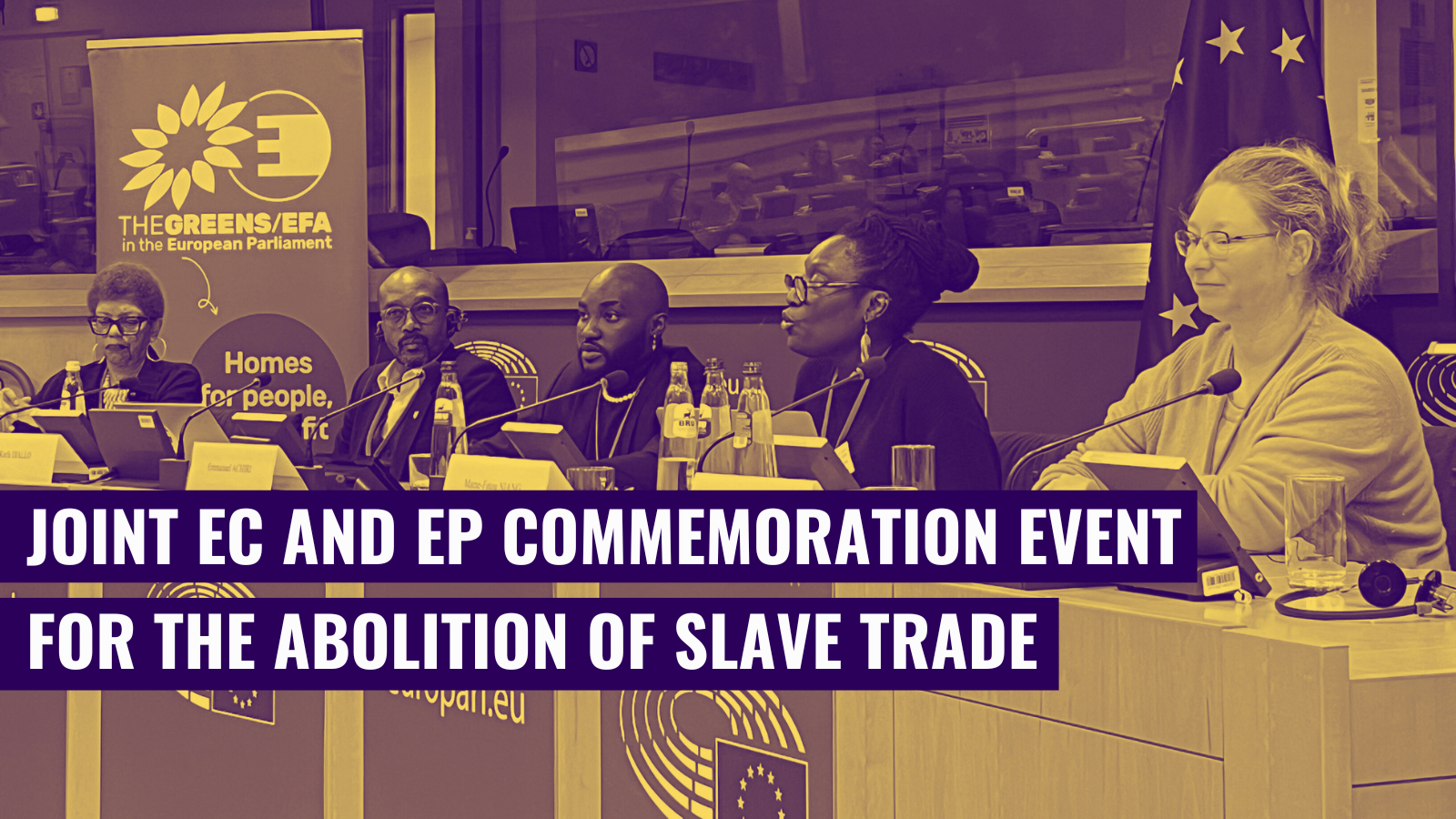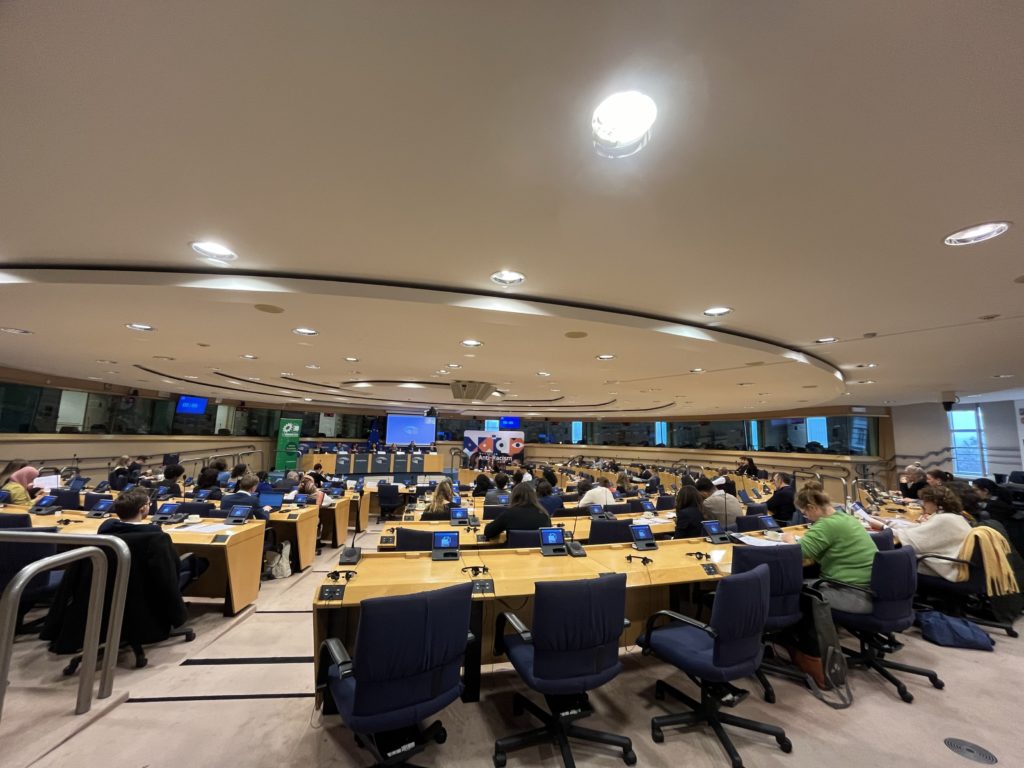
Reflections on the European Commission and Parliament’s Commemoration Event for the Abolition of the Slave Trade
Brussels, Belgium, 5 December 2023 – In a powerful joint event by the European Commission and the European Parliament, anti-racism experts and activists came together to commemorate International Day for the Abolition of Slavery. The event served as a platform for reflection and education on the enduring legacies of colonialism and enslavement, as well as a critical call to action for reparatory justice and against structural racism.
The Joint European Commission and European Parliament Commemoration of the European Day for the Abolition of the Slave Trade brought together distinguished anti-racism experts, political leaders, researchers, and activists, including the EU Anti-Racism Coordinator Michaela Moua and several ENAR members. This event, a result of intensive work spearheaded by ENAR Policy Expert and former Co-Director Ojeaku Nwabuzo, created critical spaces for discussions on the enduring legacies of colonialism and enslavement, including a panel moderated by Emmanuel Achiri, ENAR Policy and Advocacy Advisor on Migration and Policing.



Confronting Uncomfortable Truths: How Can Europe Address Its Legacies of Colonialism and Enslavement?
The panelists stressed the importance of recognising the historical roots of racism and the persisting patterns of structural racism linked to the legacies of colonialism and enslavement. The European Union Fundamental Rights Agency (FRA) also presented its recently released Being Black in the EU Report. EU and UN institutions’ representatives presented their efforts on the practical implementation of reparatory justice.
The discussion delved into how Europe can reconcile its professed commitment to the values of liberty, humanity, and equality with the enduring legacies of colonialism, slavery, and racial superiority. The need for a genuine reckoning with the past was emphasised as a cornerstone for addressing contemporary issues, including the need to confront uncomfortable truths embedded in public spaces and discriminatory law enforcement practices. As racial discrimination against people of African descent continues to rise, the panelists explored specific policy measures and initiatives crucial for addressing the root causes of structural racism.

Making Reparatory Justice a Reality in Europe
More steps towards reparatory justice need to be taken, based on key EU and UN documents such as:
- UN report by UN Secretary-General António Guterres, looking at the need for reparatory justice for people of African descent and urged states to address the lasting consequences of enslavement and colonialism, September 2023,
- EU joint statement with leaders of the Community of Latin American and Caribbean States (CELAC), acknowledging Europe’s responsibility in the slave trade resulted in ‘untold suffering’ for millions of people and suggested the need for reparations to address this ‘crime against humanity,’ July 2023.
ENAR Recommendations for Progressive Change
Building on the momentum of this commemoration event, ENAR stresses that the European Union must:
- adopt the resolution presented by Member of the European Parliament Pierrette Herzberger-Fofana on reparatory justice and sustainable development. This resolution calls for a genuine acknowledgment of the historical injustices perpetuated through colonialism and a commitment to reparations.
- enhance and fortify the EU Anti-Racism Action Plan. The plan must be bolstered with more comprehensive strategies, addressing not only individual instances of racism but also confronting systemic and institutional issues. Strengthening legislative frameworks, addressing discrimination in law enforcement and migration policies, and actively engaging racialised groups are crucial components of an improved action plan that can truly combat the deep-seated roots of racism in European society.



